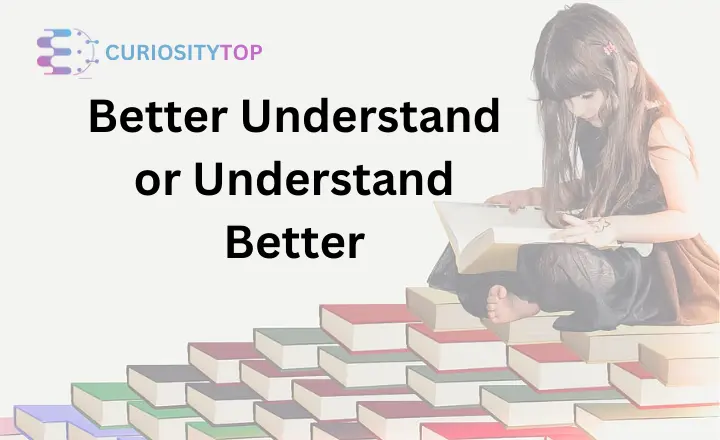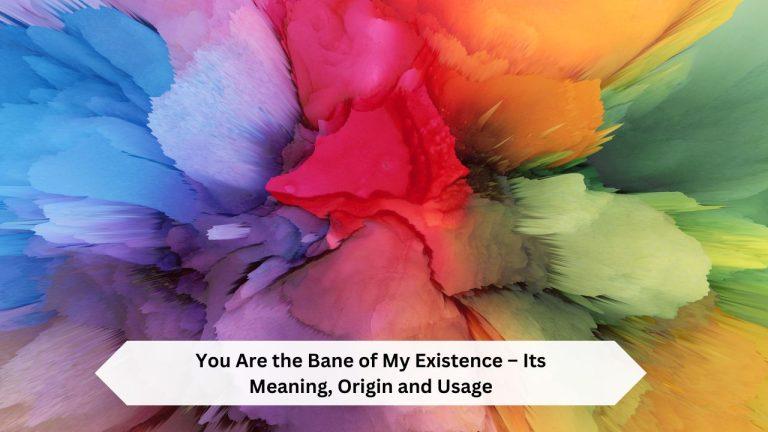Better Understand or Understand Better: Which Is Correct?
One phrase that often confuses people is Better Understand or Understand Better. Which one is right? Well, let me break it down for you in a way that’s easy to Understand.
English can be tricky, with rules that flip-flop depending on the sentence. It’s like trying to solve a puzzle where the pieces keep changing shape. But don’t worry; I’m here to help you understand this grammar conundrum.
The Main Difference Between Better Understand or Understand Better

Here’s the scoop: both “better understand” and “understand better” are correct! Yep, you read that right. The key is knowing when to use each one. Let’s dive in and explore the nitty-gritty details.
When to Use “Better Understand”?
“Better understand” usually starts at the start of a sentence or clause. It’s like the opening act of a grammar show. For example:
- To better understand this concept, let’s look at an example.
- I want to better understand how cars work.
- She needs to better understand the rules before playing.
See how it sets the stage? It’s telling us immediately that we’re aiming for improved comprehension.
When to Use “Understand Better”?
Conversely, “understand better” typically hangs out at the end of a sentence. It’s the grand finale if you will. Check out these examples:
- After studying, I understand the topic better.
- He’ll understand better once he sees it in action.
- We need more information to understand this concept better.
In these cases, “better” is the cherry on top, emphasizing the improved understanding.
The Role of Context
You might be wondering, “Why can’t we just pick one and stick with it? Choosing between these phrases usually depends on how you structure your sentence and what you want to emphasize. It’s like deciding whether to scrap an old draft or scrape together new ideas – the right choice varies. “Better understand” flows smoother, other times “understand better” hits the mark. Too short? Maybe, but that’s the gist!
Formal vs. Informal Use
“Better understand” is often seen as slightly more formal. It’s the fancy suit of the grammar world. “Understand better,” on the other hand, is more casual – like your favorite comfy jeans.
If you’re writing a scholarly paper or giving a formal presentation, “better understand” might be your go-to. But for everyday conversations or casual writing, “understand better” fits the bill just fine.
The Syntax of Success: Positioning ‘Better’ in Your Sentences

It’s a bit technical (but don’t worry, I’ll keep it simple). The word “better” in these phrases is an adverb. Adverbs are like the spice of the grammar world – they add flavor to our verbs, telling us how something is done.
In English, adverbs are flexible. They can come before or after modifying the verb without changing the core meaning. That’s why “better understand” and “understand better” work.
Before or After: Where Does ‘Better’ Fit In?
Think of “better” as a little grammar gymnast. It can flip before or after “understand” with ease. For instance:
- “I was able to better understand the concept.”
- “I understand the concept better now.”
Both sentences tell us that understanding has improved. The difference is in the emphasis and flow of the sentence.
Examples in Action: ‘Better’ in Formal and Informal Contexts
Look at some more examples to drive this home:
Formal: “To better understand his decisions, we must consider his role as the school principal.” Informal: “People often understand things better after watching YouTube tutorials.”
Can you see how the formal example leads with “better understand,” while the casual one opts for “understand better” at the end?
The Impact of Adverb Placement on Meaning and Clarity

Here’s a cool thing about adverb placement: it can subtly change the rhythm and emphasis of a sentence without altering the core meaning. Check this out:
- “Now that I’ve better understood the instructions, I’m ready to start.”
- “Now that I’ve understood the instructions better, I’m ready to start.”
Both sentences tell us the same thing – that understanding has improved. But the first one puts a little more oomph on understanding, while the second emphasizes improvement.
The Popularity Contest: Usage Trends
Which phrase is more popular? Well, I did some digging, and here’s what I found:
- “Better understand” is used about 77.8% of the time
- “Understand better” shows up in about 22.2% of cases
So, “better understand” is the clear favorite, used almost 350% more often than its counterpart. But remember, popularity doesn’t equal correctness – both are valid!
Why the Preference?
The preference for “better understand” might be because it’s seen as more formal and thus suitable for a wider range of contexts. It’s like the Swiss Army knife of understanding phrases – versatile and ready for anything.
Formality and Functionality: When to Use Which Phrase
Now that we’ve got the basics down, dig deeper. Knowing when to use “better understand” versus “understand better” is like having a secret weapon in your grammar arsenal. It’s all about context, folks!
Understanding Context: When ‘Better’ Takes the Lead
In formal settings, “better understand” often takes the cake. It’s like the tuxedo of grammar – sleek, polished, and ready for any fancy occasion. Here are some situations where “better understand” shines:
- Academic writing: “Conducting thorough research helps students better understand complex theories.”
- Professional presentations: “Our new training program will help employees better understand company policies.”
- Formal reports: “To better understand market trends, we analyzed data from the past five years.”
Leading with “better” sets a more professional tone in these cases. It’s like putting your best foot forward in the grammar world.
When ‘Understand Better’ Fits the Bill
“Understand better” is perfect for those more laid-back situations. It’s the comfy sneakers of grammar, casual but still gets the job done. Here’s where it works well:
- Casual conversations: “I’d understand better if you could give me an example.”
- Informal emails: “Let’s grab coffee so I can understand better what you’re proposing.”
- Social media posts: “After watching that video, I understand memes better now!”
See how it feels more relaxed? It’s all about matching your language to the situation.
Putting It Into Practice: Tips for Clearer Understanding

Talk about how to use this knowledge in real life. Here are some tips to help you navigate the “better understand” vs “understand better” dilemma:
- Consider your audience: Who are you talking to? A boss? A friend? Your audience can help you decide which phrase to use.
- Consider the setting: Is it a formal report or a casual chat? The setting can guide your choice.
- Look at sentence structure: Where does the phrase fit best in your sentence? Sometimes, one option flows better.
- Practice, practice, practice: Try rephrasing sentences using both options. It’ll help you get a feel for what works best.
- Read it out loud: Sometimes, hearing the phrase can help you decide which sounds more natural.
Real-Life Examples to Solidify Your Understanding
Look at some everyday scenarios to see these phrases in action:
- In a job interview: “I’m excited about this opportunity to better understand the industry.” (Formal setting, so “better understand” leads the way)
- Texting a friend about homework: “Can you explain that math problem again? I’d understand better with another example.” (This is casual context, so “understand better” fits right in)
- Writing a research paper: “To better understand the impact of social media on teens, we surveyed 1000 high school students.” (Academic setting calls for the more formal “better understand”)
- Chatting with a coworker: “I understand the new software better now that I’ve had a chance to play around with it.” (Informal work conversation, so “understand better” works well)
The Impact of Word Choice on Communication
You might be thinking, “Does it really matter which one I use?” And the answer is… kind of! While both phrases convey the same basic idea, your choice can subtly affect how your message is received.
Using “better understand” can make you sound more professional and put-together. It’s like wearing a crisp, ironed shirt to a meeting. On the other hand, “understand better” has a more approachable, down-to-earth vibe. It’s like chatting with a friend over coffee.
The Beauty of Language Flexibility
Here’s the cool thing about English: it’s flexible! The fact that we can express the same idea in slightly different ways adds richness to our language. It allows us to fine-tune our communication to fit various situations.
So, don’t stress too much about always picking the “perfect” phrase. Most importantly, your message is clear and appropriate for your audience.
Conclusion
The “better understand” and “understand better” are grammatically correct and convey similar meanings. The choice between them often depends on personal preference and context. “Better understand” places emphasis on the improvement of understanding, while “understand better” highlights the act of understanding itself. Some may prefer “understand better” in formal writing as it follows the traditional adverb placement.
FAQs
Do you say better understand or understand better?
Understand better is the correct phrase.
What does “to better understand” mean?
“To better understand” means to have a clearer or more complete comprehension of something.
How do you use better understand in a sentence?
“To better understand the problem, we must gather more information.”
“I need to study harder to understand the subject better.”
Do I understand correct or correctly?
Correctly is the correct adverb to use in this context.
“I think I understand the instructions correctly.”







